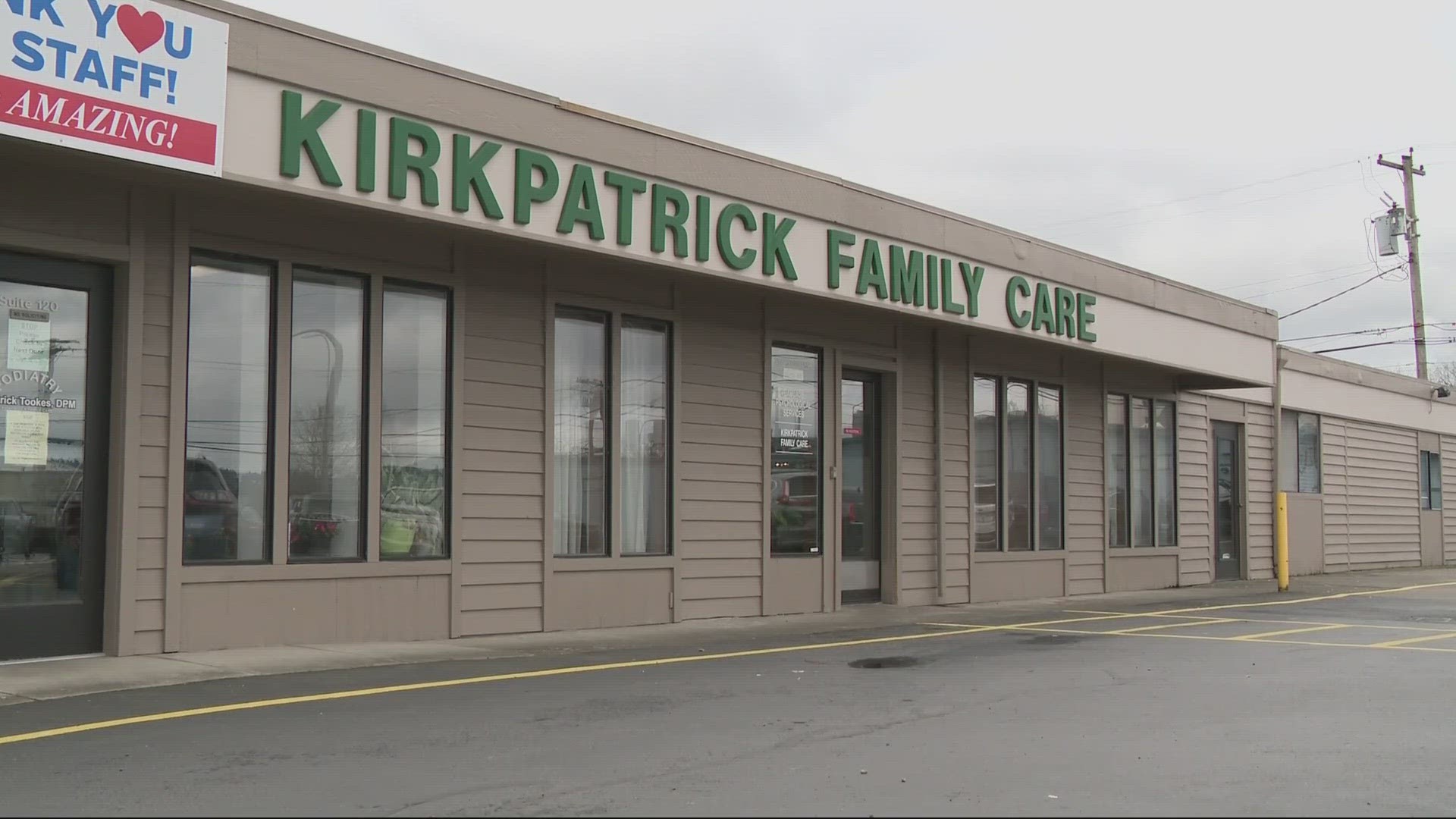
LONGVIEW, Wash. — For months, hundreds of Longview residents of Kirkpatrick Family Care have been unable to get opioid medications refilled that many rely on for chronic pain.
Over the past couple of years, many pharmacies have stopped refilling prescriptions to Dr. Richard Kirkpatrick’s clinic that, serves hundreds of patients with chronic pain. More than 500 of his patients have opioid prescriptions. Some patients have cancer, or broken necks that never healed correctly.
“I’d rather be out doing something than sitting in a rocking chair looking out a window,” Mark Davison said, a patient of Kirkpatrick’s.
For more than 20 years, Davison has been visiting Kirkpatrick’s. For the past 8 years, he has been on opioid medication for chronic pain. Davison has cancer, bones in his back and shoulders that scrape against each other, arthritis, and an assortment of other health issues.
“All of a sudden, they wouldn’t fill it no more,” Davison said.
Kirkpatrick said that many of his patients were left scrambling to find another pharmacy.
Davison has been working to get his prescriptions filled through an independent pharmacy. But, in order to do it, he said that pharmacy is making him switch all his prescriptions over — not just the opioid medication.
After three months of waiting, his prescription finally ran out on Sunday.
“There’s a lot of people out there who are just as bad if not worse off than I am,” Davison said.
Kirkpatrick said some patients have turned to drugs like fentanyl for pain relief, since they can’t get prescriptions filled.
“Some of them are going out on the streets and getting heroin,” Davison added.
Recently, the doctor’s office surveyed its patients who use opioid medication, and found that 39% of patients felt their only options would be suicide, fentanyl or street drugs if medications were not available.
Kirkpatrick said chain pharmacies stopped filling his patients prescriptions after a 2021 National Opioid Settlement. The settlement created strict limits of potentially addictive drugs, drug distributors supplied to pharmacies. Cardinal Health, a drug distributor, supplies pharmacies throughout Longview.
The settlement also created red flag thresholds for opioid prescriptions, Kirkpatrick said. Flags may be raised if pharmacies prescribe an inordinate share of opioids in their areas, or if doctors prescribe an inordinate amount.
But when many pharmacies stop filling opioid prescriptions, and some doctors stop prescribing the pain-medication, it can create a cascading effect of flags being triggered. This could occur as individual doctors prescribe, and pharmacies fill, a high portion of opioids in a given area, Kirkpatrick said.
Recently, Kirkpatrick said Cardinal Health, the drug distributor for Longview, told independent pharmacies not to honor Kirkpatrick’s opioid prescriptions.
“So that just takes us right out because we have a lot of patients that no one else will take care of,” Kirkpatrick said.
A local pharmacist told us he agrees with Kirkpatrick’s concerns.
Kirkpatrick told KGW that he reached out to Cardinal Health, but nothing changed. KGW also asked Cardinal Health for an interview, but we never heard back.
Though over time, Kirkpatrick has added patients with chronic problems, because other doctors won’t prescribe opioids, he said. Instead, other doctors may offer treatments like therapy or acupuncture, which some patients said do not work.
“I’ve had back surgery. I’ve had knees replaced, shoulder replaced, metal in my arm. Broke my wrist. You name it,” Cheryl Sharkey said, a patient of Kirkpatrick’s.
“The other options are perceived by patients as being uncaring,” Kirkpatrick said.
Sharkey, like others, hasn’t been able to get her medication. Now, she and others don’t know where to turn.
Though Kirkpatrick said, some patients are now buying fentanyl as a way to cope with the pain.



